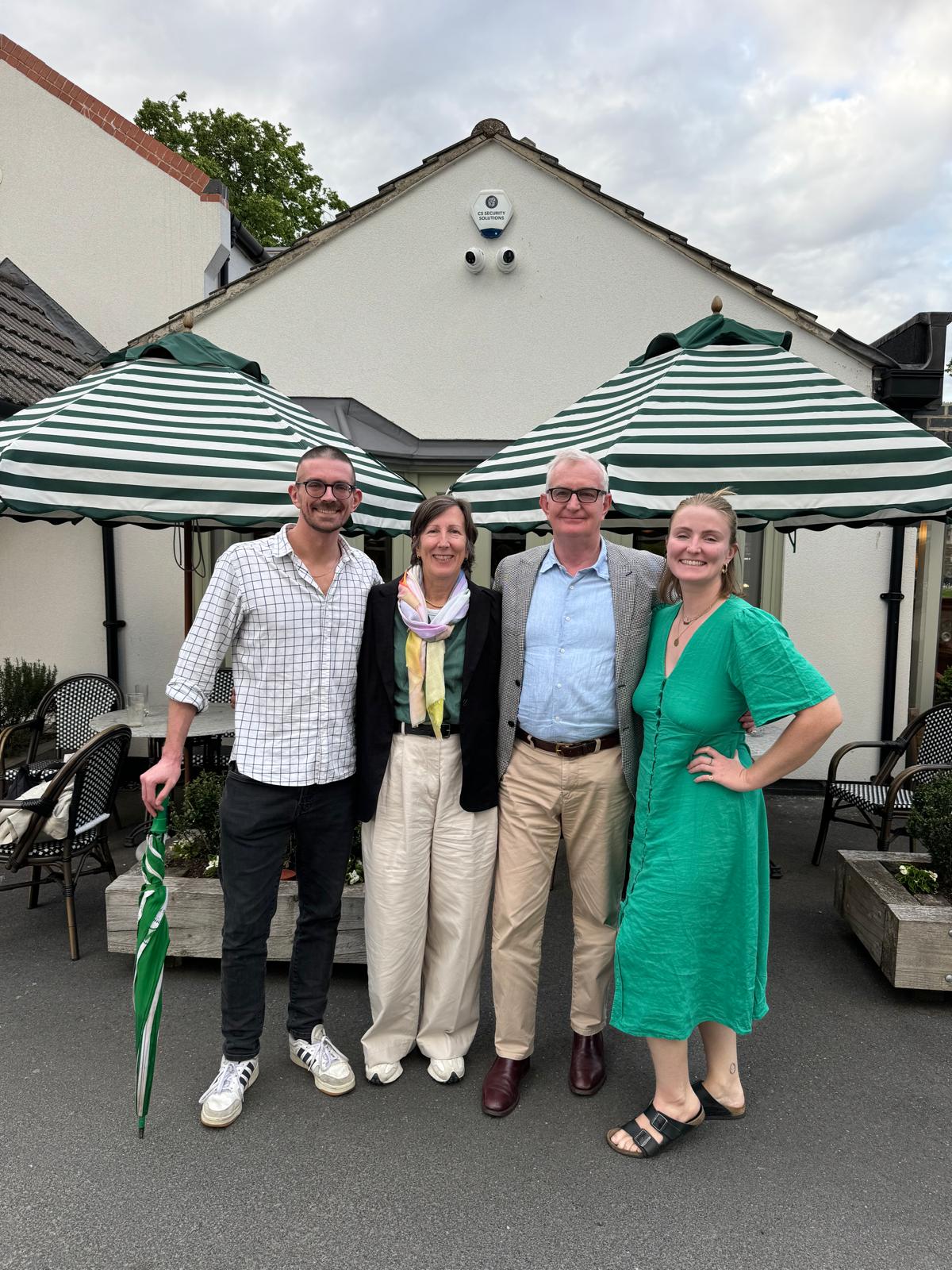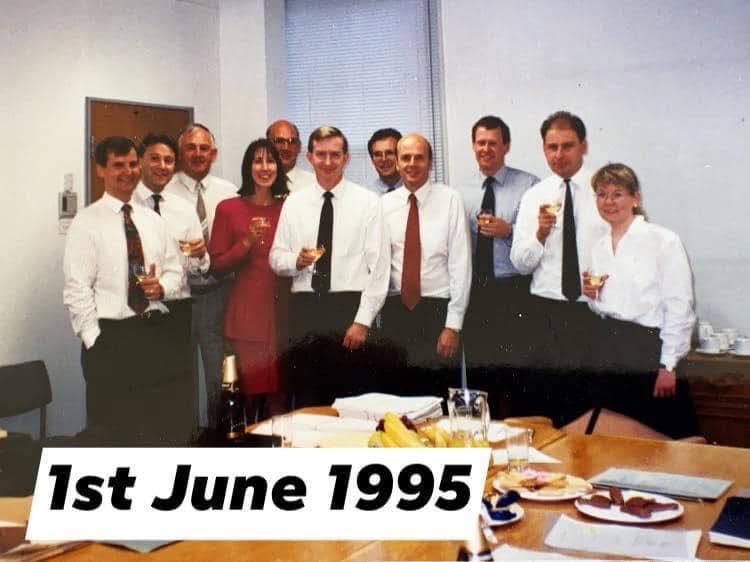celebrating 30 Years of Stewardship
in Conversation with Tony Marsh, Chairman, LH Woodhouse

In 1995, Tony Marsh became owner of L H Woodhouse & Co Ltd, a company already rich in history, with its roots stretching back over 100 years.
Now, three decades on, Tony continues to serve as Chairman, guiding a business that has grown in scale, reputation and reach, while staying true to the values that have underpinned it for over a century.
To mark 30 years of stewardship, we sat down with Tony to reflect on the journey so far: the milestones, the challenges, and the people who’ve made it possible.
When you first took ownership in 1995, what was your vision for the business?
My aim was to take on the responsibility of a respected British business and help it move forward – updating systems and products, while continuing the legacy it had already built.
Founded in 1890 and already over 100 years old at the time, Woodhouse had been run across generations of brothers. When the family made the decision to sell, they were looking not just for a buyer, but for a custodian. Continuity, stewardship, and the security of the team were all crucial to them – values that aligned closely with mine and remain just as important today.
I saw real potential, not just in the solutions, but in the people: skilled teams with deep knowledge, pride in their work, and the ability to grow with the right support. Stewardship was always the principle – the idea that you don’t just own a family business like this, you look after (curate) it.
What are some of the biggest changes you’ve seen over the past 30 years?
The industry has become more complex, and expectations, rightly, have increased.
In 1995, all product allocation was managed on paper through our ‘Movement Book’, as computers weren’t yet operational. There were no onsite forklifts, so everything was handballed on and off 30 ft trailers. Most of our hire stock was timber and canvas-based, including shedding, grandstands, tackboards and stabling. Clearspan structures were still new to us, having only been introduced in 1993.
The stabling was, quite literally, built to withstand the rigours of the time, including being launched from trailers and manhandled into position. Our teams lived in timber sheds on-site, often with little more than long-drop toilets available.
It was a different era. The industry was still in the early stages of formalising standard around safety, welfare and working practices. Structural integrity, safe systems of work and onsite welfare have all evolved enormously since then, thanks in no small part to the efforts of sector-specific trade associations like MUTA. As a member-led body, they’ve played a vital role in shaping the standards that underpin much of the industry today.
I’ve had the privilege of being inducted into MUTA’s Hall of Fame, which I see not just as a personal recognition, but as a reflection of Woodhouse’s ongoing commitment to improving conditions across the board.
Technology has also transformed how we operate, from computerised planning and logistics systems to better communications across teams. But perhaps the biggest shift is how collaborative the industry has become. The success of any build or event now depends more than ever on strong partnerships, clear communication and a shared focus on delivery.

Image taken at the time of the Marsh family’s acquisition of L H Woodhouse. Pictured are: Robert Woodhouse, Adrienne Marsh (wearing red), Michael Woodhouse (standing behind Adrienne), Tony Marsh, Michael Woodhouse (seated at the front), and Stephen Kitts (second from right – solicitor for the Woodhouse family, Eversheds Nottingham).
What are some of the highlights that stand out to you?
There are many, but it’s often the people and the progress that stand out most – seeing team members grow into leadership roles and make real contributions to the business’s success, watching Woodhouse adapt and thrive through tough times, and knowing we’ve played a part in some of the most prestigious events in the UK and beyond.
Being involved in London 2012 was a real standout moment – it was a proud time for the country and an honour for Woodhouse to contribute on that stage and to bring our innovative temporary American Barn Stables to the attention of the equestrian community worldwide.
But equally, it’s the long-standing partnerships, the continued trust of organisers year after year, and the reputation we’ve built quietly over decades that matter just as much. It’s never just one moment. It’s the steady accumulation of trust, reputation and good work over time.
What have been some of the most challenging moments?
Like any business, we’ve faced uncertainty – changes in the market, economic pressures, and unpredictable seasons. But during my tenure, Woodhouse has navigated Foot & Mouth Disease in 2001, the Financial Crisis from 2008-2010, and most recently, the Covid pandemic from 2020-2022. The last of these was especially tough, as it effectively shut down UK shows and events. Alongside fellow suppliers and organisers, we had to manage an extended period of disruption and uncertainty. The tailwinds of Covid are still being felt across our industry. We all lost key managers and developing skilled employees to other professions where they found more immediate work under furlough.
But the biggest challenge overall is consistency as you grow. It’s one thing to deliver well on a small number of builds; it’s another to deliver across the country, under pressure, with high expectations and still get the detail right. That’s where the team makes the difference.
How has the business evolved and what has stayed constant?
The tools we use, the technology, the systems – they’ve all changed. We’re more efficient now, more data-driven, and more connected across teams. But the fundamentals haven’t shifted: delivering quality, working as a team, and doing things properly. Those Woodhouse values were embedded when we started, and they still underpin everything we do.
What does stewardship mean to you personally?
It’s about respect and responsibility. When you take on a business like Woodhouse, you’re taking on its past, its present, and its future, and most importantly, your employees, their families, and the suppliers and customers who rely on it.
Stewardship means thinking long-term, doing what’s right – even if it’s not easy, and making decisions that protect and strengthen the Woodhouse business for the next generation.
What makes you optimistic about the future of Woodhouse?
It’s the people. We have a new generation team that’s capable, committed, and striving to do better. There’s strong leadership in place and a real focus on product and systems innovation but always anchored in what makes the business trusted in the first place. We’re not chasing trends; we’re continuing to raise the Woodhouse standard.